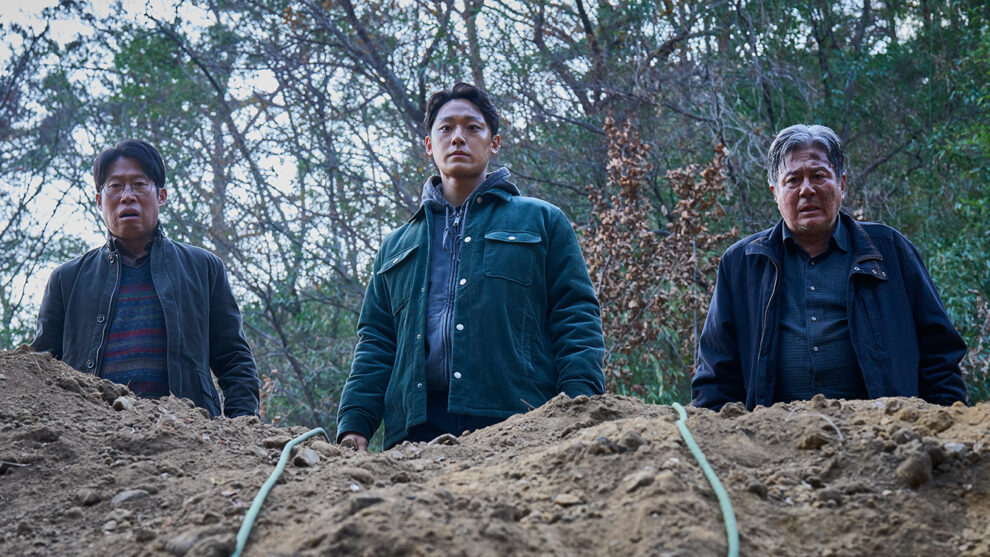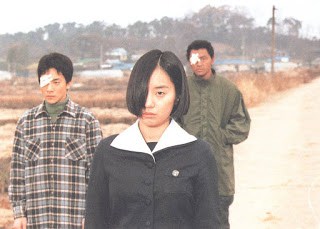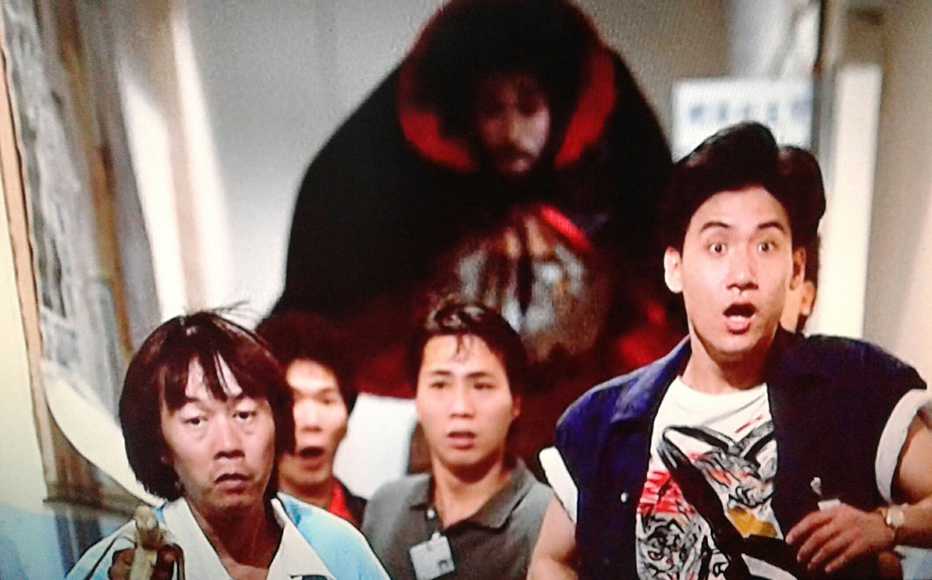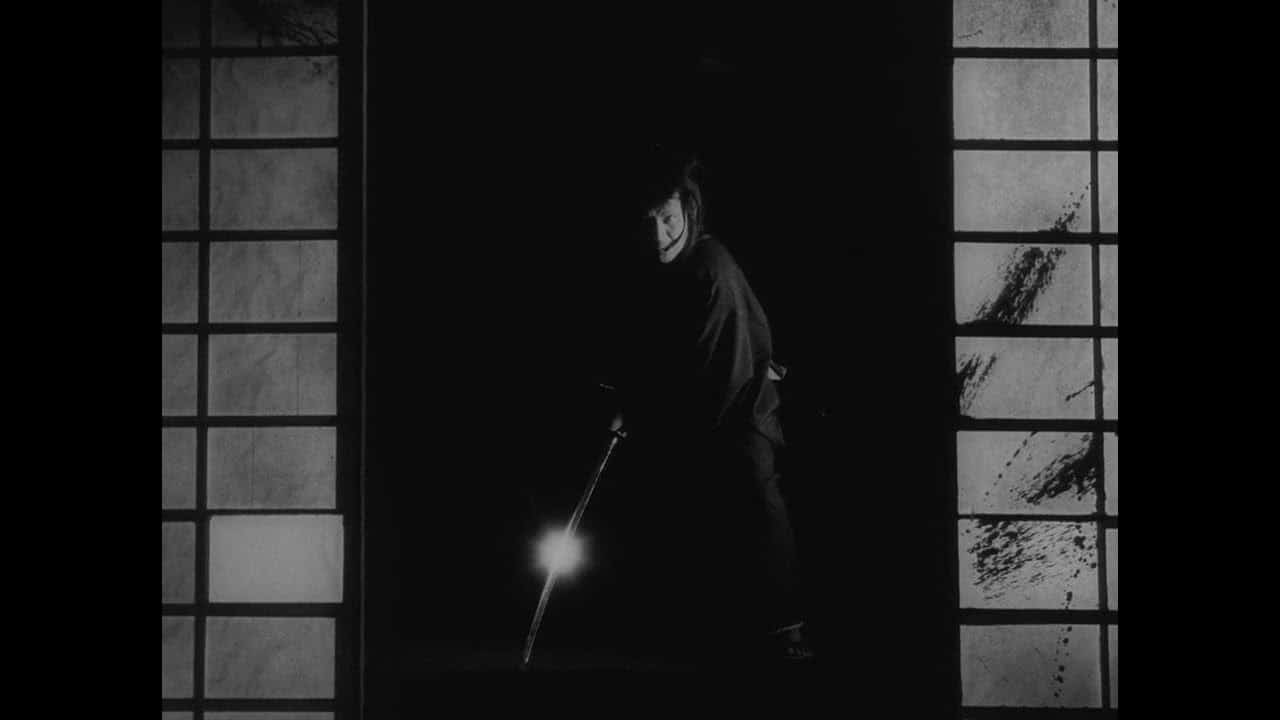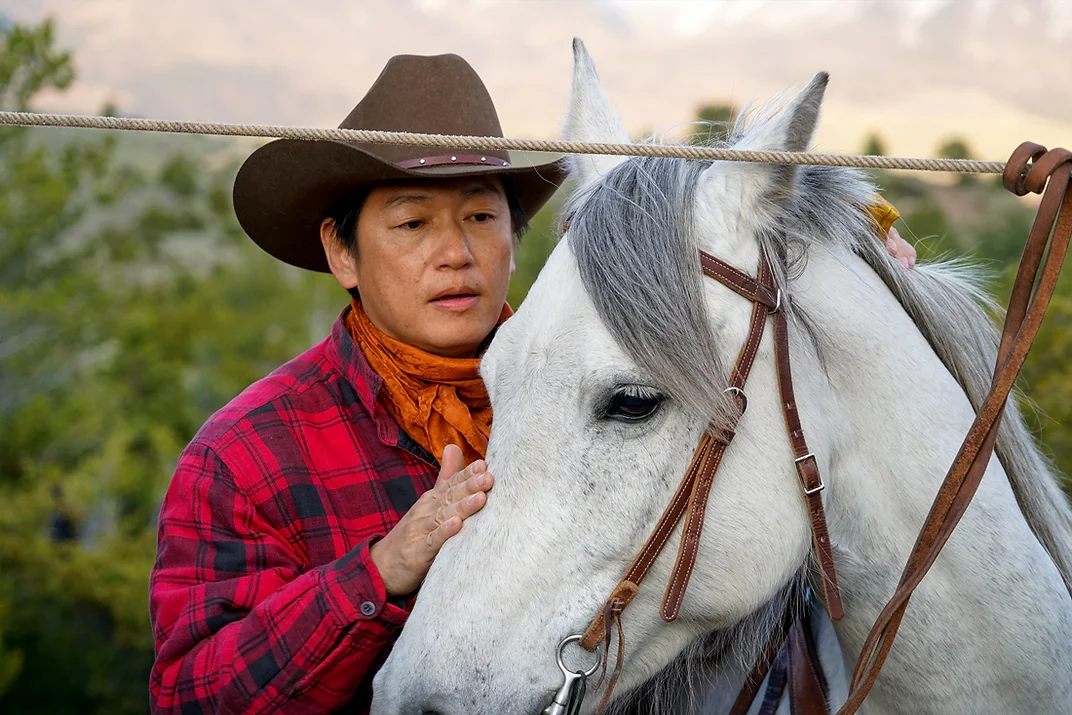Horror, long a staple and favoured genre for Asian filmmakers, has seen dwindling returns in Korea of late. Sure, there's a number of works in the genre that come out each year, but none have made quite the positive impact on the audience, critics or the box office since “The Wailing” all the way back in 2016. Director Jang Jae-hyun seems to have made it his mission to keep horror alive and kicking, debuting with “The Priests”, a well-made tale that explored Christian exorcisms, before following it up with “Svaha: The Sixth Finger”, which explored new religions and cults in the guise of horror. While both those features saw mixed reactions from the audience, Jang continues to produce scary stories with “Exhuma”, his latest work which debuted at the Berlin Film Festival before a wide release. Received with much enthusiasm from the audience, the release quickly became the highest grossing Korean film of 2024 so far.
“Exhuma” is released by WellGo USA
Famous young shaman Lee Hwa-rim is jetted off to America along with her assistant and friend Bong-gil by a rich Korean family to look into a weird supernatural illness plaguing them. The shaman discovers that a dark shadow of their ancestors has attached itself to the family, a phenomena called a “Grave's Calling”, latching onto all the first-borns. Realizing she's going to need help on this case, she calls upon feng shui expert and revered geomancer Kim Sang-deok, who deduces that an ancient grave in the family sits on an inauspicious, possibly cursed piece of land atop a mountain and is the reason behind the affliction on the employing family. The decision to exhume the grave is taken, despite Sang-deok's reservations, a decision which unleashes the malevolent spirit buried within.
After examining the correlation between religion and the supernatural in their own unique ways in his first two directories, Jang Jae-hyun continues to do the same in “Exhuma”, this time focusing on Buddhism and shamanic rituals. He takes his time to set up the story and a large part of the first third of the narrative plays like a thriller rather than a horror, despite intermittently showing flashes of the folk occult horror it has on store, but starting from the brilliantly executed sequence in which the actual exhumation takes, the narrative swiftly settles down to be a very engaging, rather scary feature.
Check also this interview
Thankfully, it doesn't need to resort to jump scare to bring the fear, save for in a couple successful instances, and lets the narrative unsettle the audience. Its inclusion of shamanic rituals, for one, will instantly draw comparisons with “The Wailing” and while as a whole it might not reach the dizzying heights of Na Hong-jin's effort, the scenes of the rituals are equally memorable. The execution of them is slightly different, possibly owing to Hwa-rim's younger age, almost bringing these practices into the modern world conclusively while still being rooted in their traditions. The chants that accompany these scenes elicit goosebumps, and the sound mix, along with the vocals, helps further enhance the creepy effect. The cinematography too plays a major role towards the effect, with the images choosing to reveal its horrors slowly but convincingly.
Most importantly, Jang encompasses the thrill and the scares around a genuinely interesting story, one that manages to bridge the gap between the present and the past, covering a lot of ground all the way to the Japanese occupation of Korea and the actions of certain influential Koreans of the time. For an audience not familiar with the customs and rituals surrounding shamanism or geomancy, the feature does a good job of explaining them, but some unexplained elements do remain, like the snake and Hwa-rim's grandmother for example, which feel like they might make more sense to a native audience who understand the concepts more clearly.
By and large, the key element holding the feature together is the excellent acting talents Jang has at his disposal. In Choi Min-sik, he has one of the best working professionals in the world, even if this is a fairly routine role for the veteran actor. His first time working in a horror production in his long and illustrious career, “Exhuma” proves there's not much Choi cannot do. Kim Go-eun, another excellent talent and one of the best actors of her generation, is on fine form here in the most demanding role of all. Involved in all the shamanic ritual sequences, she is required to dance, sing, chant and more, all of which she performs impressively. Lee Do-hyun as Bong-gil ends up being eye-candy for the majority of his time, until the final act puts some weight into his role, whereas Yoo Hae-jin is in familiar dramedy territory as Sang-deok's mortician assistant and friend Yeong-geun, even if the comedy element doesn't always hit its mark.
Despite some minor drawbacks and an ending that could have done with maybe being more daring, “Exhuma” is an excellent genre effort that does well to entertain and terrify in equal measures. A narrative that opts to slowly up its creepiness and dreadful atmosphere, it benefits from excellent performances from its wonderful cast and top-notch technical merits. A much necessary jab in the veins of the genre that has not seen much success in recent times, “Exhuma” ends up being a work that deserves the blockbuster success it is seeing at the box office.


